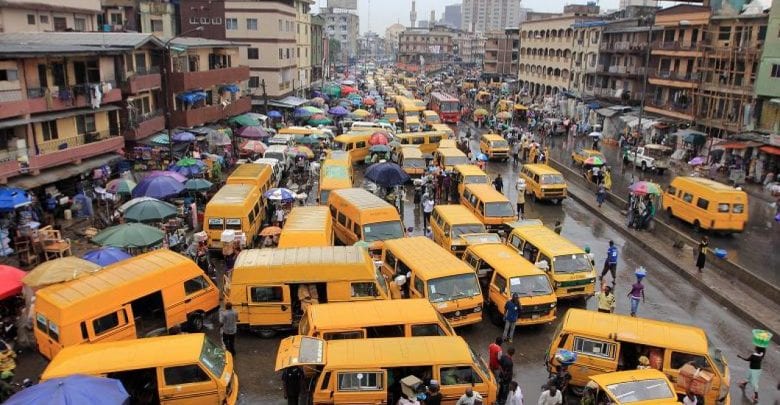
Advertisement
A careful observation has shown that transporters are seemingly unpleased about the lockdown relaxation as transportation fare doubles its usual price in Lagos, owing to the consistent rise in index cases of the coronavirus pandemic.
Recall that President of Nigeria, Muhammadu Buhari, in his last aired broadcast, relaxed the lockdown partially to permit movements between the hours of 9 am and 6 pm, being coordinated by the state and security operatives.
Similarly, the governor of Lagos state, Babajide Sanwo-Olu, in his speech said, “There will be a daily curfew from 8 pm to 6 am and all movement within these hours are prohibited, except for people on essential services, which are agro-products, petroleum products, relief materials and food supplies.”
“Food market across the state are to be opened only on Tuesday, Thursday and Saturday from 9 am to 3 pm and non-food market shall only open on Monday, Wednesday and Friday within the same stipulated hours.”
“Public transport services are to operate from 6 am to 7 pm daily. Vehicle capacity regulations will be communicated as the NURTW /RTEAN have been in full engagement on achieving these regulations.”
As the virus persist, with index cases rising in the state, leaving possible consideration for another lockdown, most residents who have made movements within areas have raised complaints about excessive spendings on transportation fees.
This is not unconnected to preventive measures by the World Health Organisation and Nigeria Center for Disease Control to maintain 1 metre (3 feet) distance between others. To this end, buses have been instructed to carry two passengers per sit, at both edges; tricycles, two at the back, sitting at the edge while only the driver in front; while motorcycles, one passenger.
Reports gathered was that in some areas, transport unions have mandated only movement of selective transportations, while other bus points have been closed.
Some motorists confirmed that they were mandated to keep 1-meter space within passengers, leaving them to carry not up to 10 passengers in a 16-seater bus.
One Mr Ogunyemi said, “We spend money on fuel and yet still have to pay the same bills on loading passengers at bus point. So it is on a safe end for us to increase prices.”
Another who spoke under anonymity mentioned that the pandemic and lockdown measure exhausted all savings, noting that the sudden rise in prices of goods and products also have an effect on transportation.
Confirming some transport fares: Alakuko to Abeokuta spend about N1000; From Alakuko to Oshodi is N700, Ikotun to Ikeja is about N300; From Iyana Ipaja to Iyaniba is about N500; Iyana Ipaja – Ikeja – Oshodi is about N500; Iyaniba to Mile Two is about N300; From Igbogbo to Ketu N500; Ketu – Maryland- Ojuelegba – Yaba is about N500.
Meanwhile, with the Motorcycle Ban imposed by the Governor in some areas of Lagos state, most residents are left stranded at bus points as some make alternatives for Long Tata buses (BRT).
One Mrs Efe said, “I have to over spend on every movement I make. Where I go daily spending about N200 I spend nothing less than N600. This is with addition to the stress and waiting under the sun.”
A business woman, Mrs Esther, said: “if I have to spend at least less I wake up to the market as early as 5 am to buy whatsoever I need and come as early as possible.”
Another civil servant said, “We were asked to resume, we are unsure of salaries and even jobs yet we still spend more on transportation, at least up to N1000 to and fro.”
Some locals residents similarly confirmed that their area only the motorcycles or tricycles are allowed to move within their community for stipulated hours.
However, economic experts have opined that the country might possibly move into recession if it comes out of the crises soon; this presumption might just have a great effect on transportation for a long time.
